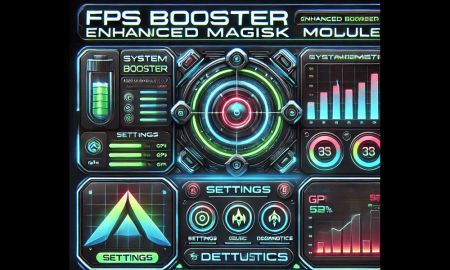A Comprehensive Guide to Python Module Development
.png)
Python has gained immense |PYTHON HAS GAINED IMMENSE |
popularity as one of |HAS GAINED IMMENSE POPULARITY |
the most versatile and |GAINED IMMENSE POPULARITY AS |
user-friendly programming languages. One |IMMENSE POPULARITY AS ONE |
of the reasons for |POPULARITY AS ONE OF |
its popularity is the |AS ONE OF THE |
extensive library of modules |ONE OF THE MOST |
and packages available. However, |OF THE MOST VERSATILE |
what if you want |THE MOST VERSATILE AND |
to create your own |MOST VERSATILE AND USER-FRIENDLY |
Python module to extend |VERSATILE AND USER-FRIENDLY PROGRAMMING |
functionality or share your |AND USER-FRIENDLY PROGRAMMING LANGUAGES. |
code with others? In |USER-FRIENDLY PROGRAMMING LANGUAGES. ONE |
this comprehensive guide, we |PROGRAMMING LANGUAGES. ONE OF |
will walk you through |LANGUAGES. ONE OF THE |
the ins and outs |ONE OF THE REASONS |
of Python module development, |OF THE REASONS FOR |
from the basics to |THE REASONS FOR ITS |
advanced techniques. Python modules are collections |FOR ITS POPULARITY IS |
of Python code bundled |ITS POPULARITY IS THE |
together, allowing you to |POPULARITY IS THE EXTENSIVE |
organize, reuse, and share |IS THE EXTENSIVE LIBRARY |
code effectively. Whether you |THE EXTENSIVE LIBRARY OF |
are developing a simple |EXTENSIVE LIBRARY OF MODULES |
utility or a complex |LIBRARY OF MODULES AND |
library, creating your own |OF MODULES AND PACKAGES |
Python module can streamline |MODULES AND PACKAGES AVAILABLE. |
your workflow and make |AND PACKAGES AVAILABLE. HOWEVER, |
your code more accessible |PACKAGES AVAILABLE. HOWEVER, WHAT |
to others. Creating your Python |HOWEVER, WHAT IF YOU |
module offers several benefits. |WHAT IF YOU WANT |
It allows you to: engaging README |CODE WITH OTHERS? IN |
files that showcase your |WITH OTHERS? IN THIS |
module’s features and benefits. |OTHERS? IN THIS COMPREHENSIVE |
Share your module on |IN THIS COMPREHENSIVE GUIDE, |
social media platforms, developer |THIS COMPREHENSIVE GUIDE, WE |
forums, and Python-related communities. |COMPREHENSIVE GUIDE, WE WILL |
Collaborating with influencers or |GUIDE, WE WILL WALK |
well-known developers can also |WE WILL WALK YOU |
help increase visibility. Additionally, consider |WILL WALK YOU THROUGH |
creating tutorial videos or |WALK YOU THROUGH THE |
blog posts demonstrating how |YOU THROUGH THE INS |
to use your module. |THROUGH THE INS AND |
Providing comprehensive and beginner-friendly |THE INS AND OUTS |
documentation is crucial for |INS AND OUTS OF |
attracting and retaining users. Remember |AND OUTS OF PYTHON |
that building a user |OUTS OF PYTHON MODULE |
community takes time and |OF PYTHON MODULE DEVELOPMENT, |
effort. Be responsive to |PYTHON MODULE DEVELOPMENT, FROM |
user feedback and continually |MODULE DEVELOPMENT, FROM THE |
improve your module based |DEVELOPMENT, FROM THE BASICS |
on user suggestions and |FROM THE BASICS TO |
bug reports. Engaging with |THE BASICS TO ADVANCED |
your users and addressing |BASICS TO ADVANCED TECHNIQUES. |
their needs can lead |TO ADVANCED TECHNIQUES. INTRODUCTION |
to a loyal and |ADVANCED TECHNIQUES. INTRODUCTION TO |
growing user base. So, go |TECHNIQUES. INTRODUCTION TO PYTHON |
ahead and promote your |INTRODUCTION TO PYTHON MODULES |
Python module with confidence, |TO PYTHON MODULES PYTHON |
and watch it gain |PYTHON MODULES PYTHON MODULES |
traction in the Python |MODULES PYTHON MODULES ARE |
development community. Your dedication |PYTHON MODULES ARE COLLECTIONS |
and commitment will play |MODULES ARE COLLECTIONS OF |
a significant role in |ARE COLLECTIONS OF PYTHON |
its success. Now, armed with |COLLECTIONS OF PYTHON CODE |
this comprehensive guide to |OF PYTHON CODE BUNDLED |
Python module development, you’re |PYTHON CODE BUNDLED TOGETHER, |
ready to embark on |CODE BUNDLED TOGETHER, ALLOWING |
your journey of creating, |BUNDLED TOGETHER, ALLOWING YOU |
sharing, and contributing to |TOGETHER, ALLOWING YOU TO |
the Python ecosystem. Happy |ALLOWING YOU TO ORGANIZE, |
coding! Before diving into module |TO ORGANIZE, REUSE, AND |
development, you need to |ORGANIZE, REUSE, AND SHARE |
set up your development |REUSE, AND SHARE CODE |
environment correctly. Here are |AND SHARE CODE EFFECTIVELY. |
the essential steps: Python |SHARE CODE EFFECTIVELY. WHETHER |
is a prerequisite for |CODE EFFECTIVELY. WHETHER YOU |
module development. You can |EFFECTIVELY. WHETHER YOU ARE |
download the latest Python |WHETHER YOU ARE DEVELOPING |
version from the official |YOU ARE DEVELOPING A |
website and follow the |ARE DEVELOPING A SIMPLE |
installation instructions for your |DEVELOPING A SIMPLE UTILITY |
operating system. Virtual |A SIMPLE UTILITY OR |
environments help isolate your |SIMPLE UTILITY OR A |
project’s dependencies, ensuring a |UTILITY OR A COMPLEX |
clean and controlled development |OR A COMPLEX LIBRARY, |
environment. You can create |A COMPLEX LIBRARY, CREATING |
a virtual environment using |COMPLEX LIBRARY, CREATING YOUR |
the built-in venv module |LIBRARY, CREATING YOUR OWN |
or choose third-party tools |CREATING YOUR OWN PYTHON |
like virtualenv. Selecting a code editor |OWN PYTHON MODULE CAN |
that suits your workflow |PYTHON MODULE CAN STREAMLINE |
is crucial. Popular choices |MODULE CAN STREAMLINE YOUR |
include Visual Studio Code, |CAN STREAMLINE YOUR WORKFLOW |
PyCharm, Sublime Text, and |STREAMLINE YOUR WORKFLOW AND |
Jupyter Notebook. Customize your |YOUR WORKFLOW AND MAKE |
editor with Python extensions |WORKFLOW AND MAKE YOUR |
to enhance your coding |AND MAKE YOUR CODE |
experience. Now that your environment |YOUR CODE MORE ACCESSIBLE |
is set up let’s |CODE MORE ACCESSIBLE TO |
create your first Python |MORE ACCESSIBLE TO OTHERS. |
module. Follow these guidelines: Choose a meaningful and |TO OTHERS. WHY CREATE |
unique name for your |OTHERS. WHY CREATE YOUR |
module, adhering to Python’s |WHY CREATE YOUR OWN |
naming conventions. Use lowercase |CREATE YOUR OWN MODULE? |
letters and underscores to |YOUR OWN MODULE? CREATING |
separate words (e.g., my_module). Organize your module |MODULE? CREATING YOUR PYTHON |
by grouping related functions |CREATING YOUR PYTHON MODULE |
and classes together. Use |YOUR PYTHON MODULE OFFERS |
packages to further structure |PYTHON MODULE OFFERS SEVERAL |
your code if needed. Document your module thoroughly. |OFFERS SEVERAL BENEFITS. IT |
Provide clear explanations, usage |SEVERAL BENEFITS. IT ALLOWS |
examples, and information on |BENEFITS. IT ALLOWS YOU |
dependencies. Proper documentation helps |IT ALLOWS YOU TO: |
users understand and utilize |ALLOWS YOU TO: MODULARIZE |
your module effectively. Remember, your |YOU TO: MODULARIZE YOUR |
module’s success often depends |TO: MODULARIZE YOUR CODE: |
on how well it’s |MODULARIZE YOUR CODE: BREAK |
documented. To ensure the longevity |CODE: BREAK YOUR CODE |
and usefulness of your |BREAK YOUR CODE INTO |
module, follow these best |YOUR CODE INTO MANAGEABLE |
practices: Define |CODE INTO MANAGEABLE PARTS, |
functions and classes logically. |INTO MANAGEABLE PARTS, MAKING |
Keep your code modular |MANAGEABLE PARTS, MAKING IT |
and easy to understand. |PARTS, MAKING IT EASIER |
Use docstrings to describe |MAKING IT EASIER TO |
their purpose and usage. Manage imports efficiently. Avoid |EASIER TO MAINTAIN AND |
importing unnecessary modules, as |TO MAINTAIN AND DEBUG. |
it can lead to |MAINTAIN AND DEBUG. REUSABILITY: |
longer load times and |AND DEBUG. REUSABILITY: SHARE |
potential conflicts. Version |DEBUG. REUSABILITY: SHARE YOUR |
your module to track |REUSABILITY: SHARE YOUR CODE |
changes and ensure backward |SHARE YOUR CODE ACROSS |
compatibility. Semantic versioning (e.g., |YOUR CODE ACROSS DIFFERENT |
1.0.0) is a common |CODE ACROSS DIFFERENT PROJECTS |
practice. Stay tuned for the |ACROSS DIFFERENT PROJECTS WITHOUT |
next section, where we |DIFFERENT PROJECTS WITHOUT REWRITING |
will delve deeper into |PROJECTS WITHOUT REWRITING IT. |
module development, testing, and |WITHOUT REWRITING IT. COLLABORATION: |
distribution. In this comprehensive guide, |REWRITING IT. COLLABORATION: COLLABORATE |
we have covered the |IT. COLLABORATION: COLLABORATE WITH |
fundamentals of Python module |COLLABORATION: COLLABORATE WITH OTHER |
development, from creating your |COLLABORATE WITH OTHER DEVELOPERS |
first module to advanced |WITH OTHER DEVELOPERS BY |
techniques like distribution, optimization, |OTHER DEVELOPERS BY PROVIDING |
and security. Developing Python |DEVELOPERS BY PROVIDING A |
modules opens up a |BY PROVIDING A WELL-STRUCTURED |
world of possibilities for |PROVIDING A WELL-STRUCTURED INTERFACE |
you to create, share, |A WELL-STRUCTURED INTERFACE TO |
and collaborate on innovative |WELL-STRUCTURED INTERFACE TO YOUR |
projects. Remember, the Python community |INTERFACE TO YOUR CODE. |
is always eager to |TO YOUR CODE. COMMUNITY |
welcome new modules that |YOUR CODE. COMMUNITY CONTRIBUTION: |
simplify tasks, solve problems, |CODE. COMMUNITY CONTRIBUTION: CONTRIBUTE |
or introduce exciting capabilities. |COMMUNITY CONTRIBUTION: CONTRIBUTE TO |
Your contribution can make |CONTRIBUTION: CONTRIBUTE TO THE |
a significant impact. Feel confident |CONTRIBUTE TO THE PYTHON |
to start your Python |TO THE PYTHON COMMUNITY |
module development journey, and |THE PYTHON COMMUNITY BY |
don’t forget to refer |PYTHON COMMUNITY BY SHARING |
back to this guide |COMMUNITY BY SHARING YOUR |
whenever you need assistance. |BY SHARING YOUR INNOVATIVE |
Happy coding! 1. What is |SHARING YOUR INNOVATIVE SOLUTIONS. |
the difference between a |YOUR INNOVATIVE SOLUTIONS. CUSTOMIZATION: |
Python module and a |INNOVATIVE SOLUTIONS. CUSTOMIZATION: TAILOR |
package? A Python module is |SOLUTIONS. CUSTOMIZATION: TAILOR MODULES |
a single file containing |CUSTOMIZATION: TAILOR MODULES TO |
Python code, while a |TAILOR MODULES TO YOUR |
package is a collection |MODULES TO YOUR SPECIFIC |
of modules organized in |TO YOUR SPECIFIC NEEDS, |
directories. Packages typically include |YOUR SPECIFIC NEEDS, ENHANCING |
an __init__.py file to |SPECIFIC NEEDS, ENHANCING YOUR |
indicate that a directory |NEEDS, ENHANCING YOUR PROJECT’S |
should be treated as |ENHANCING YOUR PROJECT’S EFFICIENCY. |
a package. 2. Can I |YOUR PROJECT’S EFFICIENCY. FEATURES |
use third-party modules in |PROJECT’S EFFICIENCY. FEATURES AND |
my Python module? Yes, you |EFFICIENCY. FEATURES AND BENEFITS |
can use third-party modules |FEATURES AND BENEFITS ENGAGING |
in your Python module. |AND BENEFITS ENGAGING README |
Be sure to specify |BENEFITS ENGAGING README FILES |
dependencies in your module’s |ENGAGING README FILES THAT |
documentation and consider using |README FILES THAT SHOWCASE |
virtual environments to manage |FILES THAT SHOWCASE YOUR |
them. 3. How do I |THAT SHOWCASE YOUR MODULE’S |
upload my Python module |SHOWCASE YOUR MODULE’S FEATURES |
to PyPI for distribution? Uploading |YOUR MODULE’S FEATURES AND |
your module to the |MODULE’S FEATURES AND BENEFITS. |
Python Package Index (PyPI) |FEATURES AND BENEFITS. SHARE |
involves creating a PyPI |AND BENEFITS. SHARE YOUR |
account, packaging your module |BENEFITS. SHARE YOUR MODULE |
following PyPI’s guidelines, and |SHARE YOUR MODULE ON |
using tools like twine |YOUR MODULE ON SOCIAL |
to upload it. Detailed |MODULE ON SOCIAL MEDIA |
instructions can be found |ON SOCIAL MEDIA PLATFORMS, |
on the PyPI website. 4. |SOCIAL MEDIA PLATFORMS, DEVELOPER |
What is the recommended |MEDIA PLATFORMS, DEVELOPER FORUMS, |
way to document Python |PLATFORMS, DEVELOPER FORUMS, AND |
modules? The recommended way to |DEVELOPER FORUMS, AND PYTHON-RELATED |
document Python modules is |FORUMS, AND PYTHON-RELATED COMMUNITIES. |
by using docstrings. Docstrings |AND PYTHON-RELATED COMMUNITIES. COLLABORATING |
are descriptive comments placed |PYTHON-RELATED COMMUNITIES. COLLABORATING WITH |
within your code that |COMMUNITIES. COLLABORATING WITH INFLUENCERS |
provide information about the |COLLABORATING WITH INFLUENCERS OR |
purpose, usage, and parameters |WITH INFLUENCERS OR WELL-KNOWN |
of functions, classes, and |INFLUENCERS OR WELL-KNOWN DEVELOPERS |
modules. 5. How can I |OR WELL-KNOWN DEVELOPERS CAN |
promote my Python module |WELL-KNOWN DEVELOPERS CAN ALSO |
to gain more users? To |DEVELOPERS CAN ALSO HELP |
promote your Python module |CAN ALSO HELP INCREASE |
effectively.Introduction to Python |REASONS FOR ITS POPULARITY |
Modules
Why Create Your |AVAILABLE. HOWEVER, WHAT IF |
Own Module?
Features and Benefits
Setting Up Your Development |YOU TO ORGANIZE, REUSE, |
Environment
Installing Python
Using Virtual Environments
Choosing a Code |YOUR OWN PYTHON MODULE |
Editor
Creating Your First Python |MAKE YOUR CODE MORE |
Module
Naming |ACCESSIBLE TO OTHERS. WHY |
Conventions
Organizing |OWN MODULE? CREATING YOUR |
Your Module
Writing |MODULE OFFERS SEVERAL BENEFITS. |
Documentation
Module Structure and Best |YOUR CODE: BREAK YOUR |
Practices
Defining Functions and Classes
Handling |IT EASIER TO MAINTAIN |
Imports
Versioning Your Module
Conclusion
FAQs





